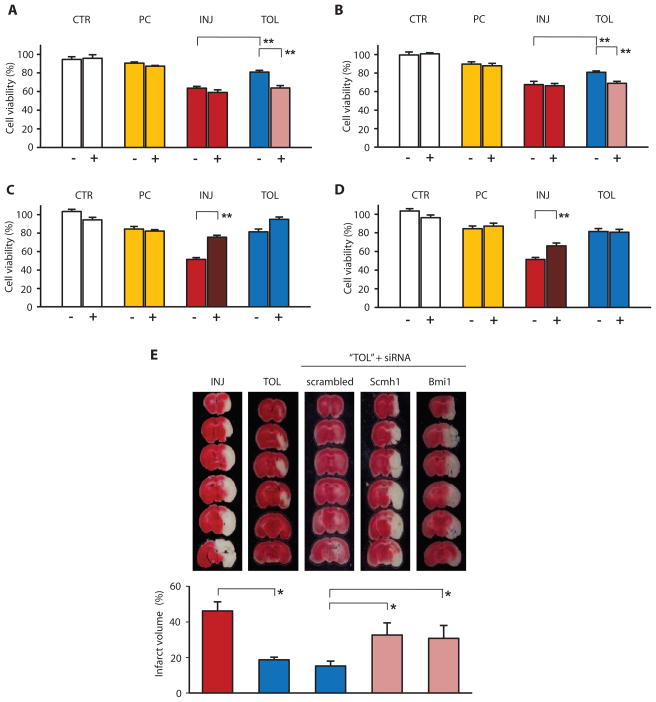Fig. 3.
Dependence of ischemic tolerance on PcG protein abundance in vitro and in vivo. Before differentiation and OGD, NS20Y cells were transiently transfected with scrambled RNA (−) or siRNA oligonucleotides (+) directed against Scmh1 (A) or Bmi1 (B), or stably transfected with plasmid encoding recombinant Scmh1 (C) or Bmi1 (D), respectively. OGD-induced injury was assessed by cell viability (percent to control cells). Data represent mean ± SE of at least three independent cultures. A 40 to 50% decrease in viability was caused by 2-hour OGD, which could be prevented by a preceding 30-min OGD. (E) Effects of knocking down PcG expression on ischemic tolerance in vivo. One-hour MCAO caused massive infarction of the mouse cortex (INJ), which was avoided when the brain was exposed to a 15-min preconditioning ischemia (TOL). Administration of siRNA directed against Scmh1 or Bmi1, but not scrambled RNA, significantly diminished the preconditioning ischemia-induced ischemic tolerance. Tissue infarction was revealed (top) and quantified (bottom; mean ± SE, n = 5 to 8 animals each group) by vital dye staining of fresh brain slices. Altered PcG protein abundance with the application of siRNA or ORF cDNA are demonstrated in fig. S3. *P < 0.05; **P < 0.005.

